One touch of nature makes the whole world kin
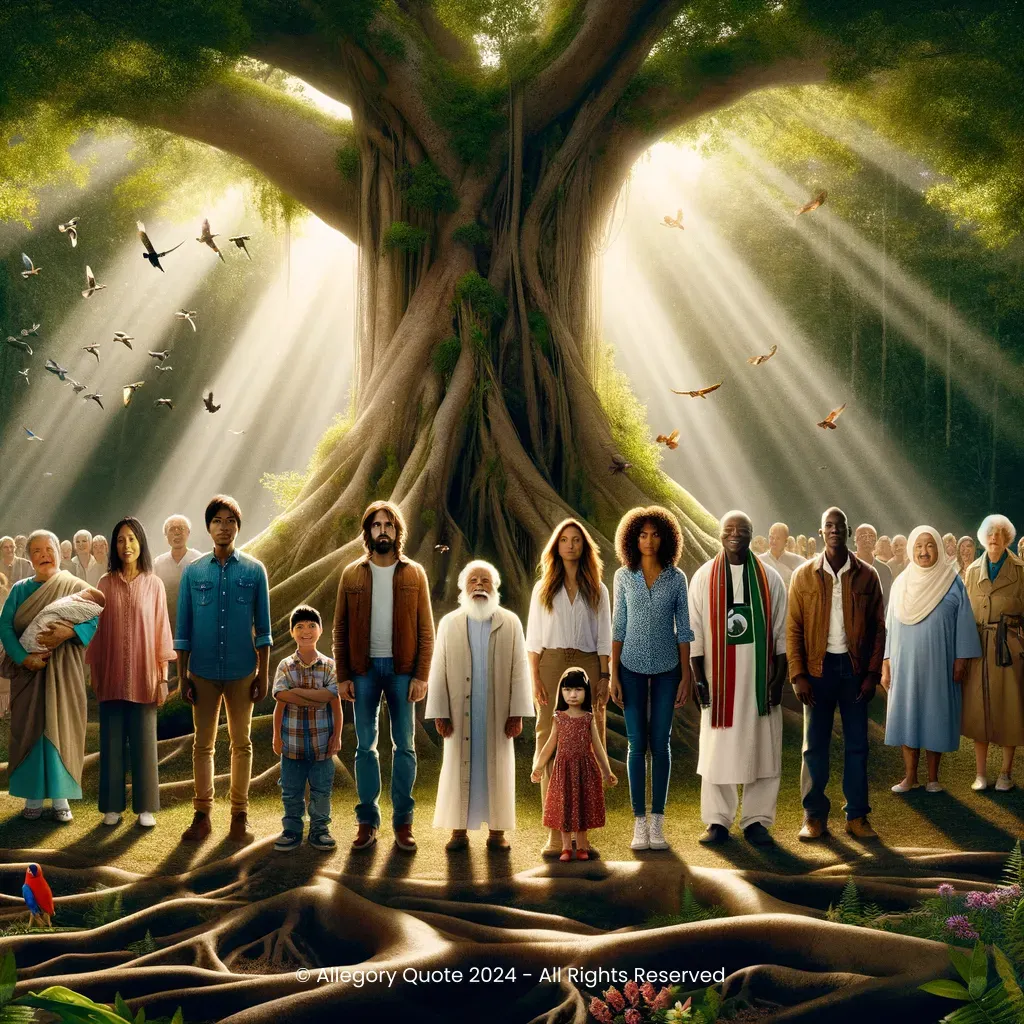
0
0
0
0
- Meaning
- This quote suggests that a simple and natural experience or phenomenon has the power to unite all people by reminding them of their common humanity. Just as nature is universal, so too are certain experiences that cross cultural and social boundaries and bring people together, enhancing their sense of kinship.
- Allegory
- The image includes diverse people to represent global interconnectedness, standing together in a forest symbolizing natural unity. The trees' canopy forming an arch shows unity and protection, while sunlight filtering through leaves casts a warm, unifying glow. The ancient tree at the center with its expansive roots represents shared human origins and common humanity. Birds, flowers, and other natural elements emphasize the beauty and harmony that nature brings, reflecting the quote’s essence about nature’s power to connect us all.
- Applicability
- In daily life, this quote can apply to moments when people find common ground through their shared experiences of nature. For example, witnessing a beautiful sunset, feeling the refreshing rain, or marveling at a starry night sky can bring different people closer together, fostering a sense of unity and mutual understanding.
- Impact
- This phrase has impacted literature and popular culture by promoting an appreciation for nature and its ability to connect people. It has been used to advocate for environmental conservation and to emphasize the commonalities shared by all humans despite their differences. In various forms, it continues to inspire discussions about the importance of nature in our lives.
- Historical Context
- "Troilus and Cressida" was likely written in the early 1600s. Its historical context includes the Elizabethan era, a time of exploration, artistic flourishing, and scientific inquiry. During this period, nature was often a theme explored in literature as a powerful and unifying force.
- Criticisms
- There are no significant criticisms or controversies directly related to this particular phrase from Shakespeare. However, some might argue that nature doesn’t universally impact everyone in the same way due to different environmental, cultural, or personal contexts.
- Variations
- There are variations of this idea in many cultures. For example, in Native American sayings, there is often a reference to the interconnectedness of all life through nature, emphasizing a deep and spiritual connection to the earth and its creatures.
-

The empty vessel makes the loudest sound.
-
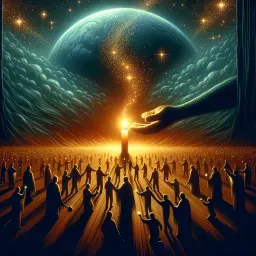
How far that little candle throws his beams! So shines a good deed in a naughty world.
-
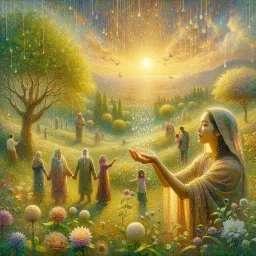
The quality of mercy is not strain'd, it droppeth as the gentle rain from heaven upon the place beneath.
-
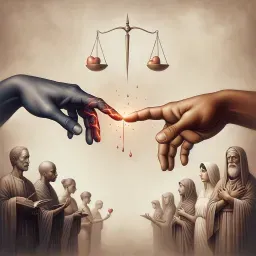
If you prick us, do we not bleed?
-
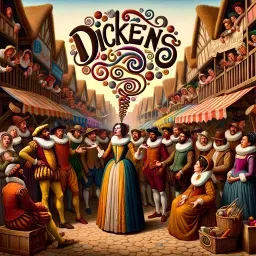
I cannot tell what the dickens his name is.
-
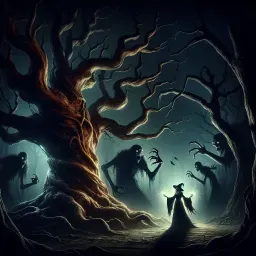
By the pricking of my thumbs, something wicked this way comes.
-

The smallest worm will turn, being trodden on.
-

I like this place and could willingly waste my time in it.
-

Men at some time are masters of their fates.
-

There are more things in heaven and earth, Horatio, than are dreamt of in your philosophy.
-

Give sorrow words; the grief that does not speak knits up the o-er wrought heart and bids it break.
No Comments